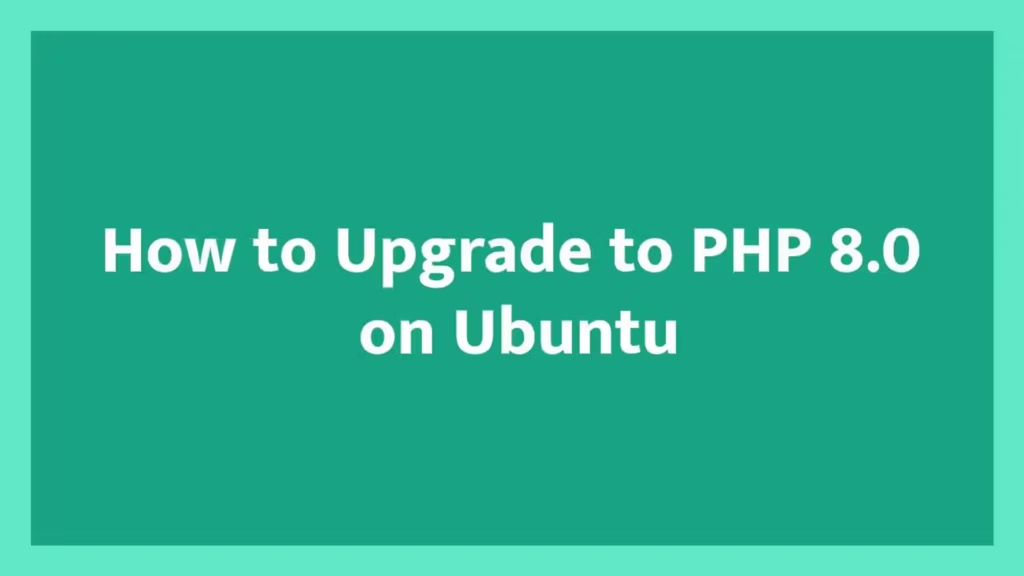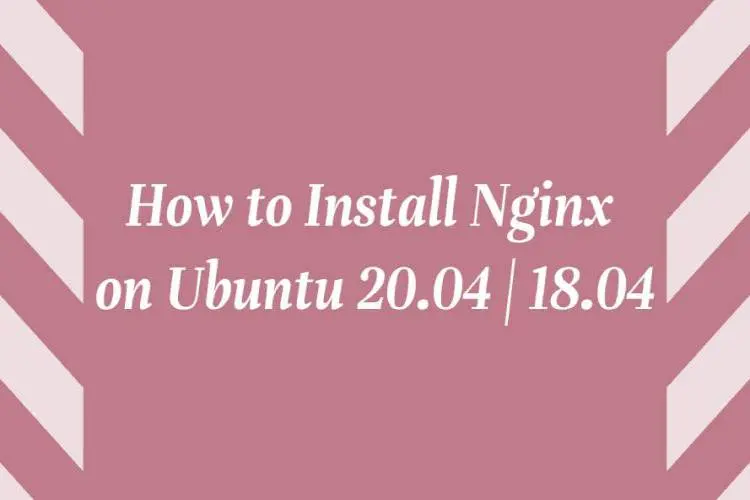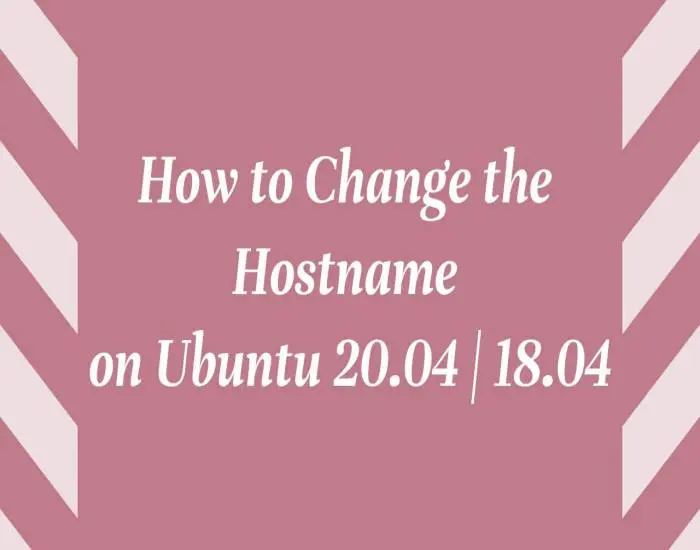This post shows users and new students that how to Upgrade to PHP 8.0 on Ubuntu. If your are going to Upgrade to PHP 8.0 on Ubuntu then this post is ideal for you.
PHP 8.0 is a new version with lots of improvements and features. It will officially released on November 26, 2020.
For WordPress sites, latest version of PHP offers new features and improvements for developers. They will find useful and improvements that enhance security and performance of the PhP based application or website in the long run.
PHP is a popular general purpose scripting programmiing language especially for the web development. It was originally developed by Danish Canadian programmer Rasmus Lerdorf in 1994.
Ubuntu is a Linux Operating System based on Debian and mostly composed of non-profit(free) and open-source software. It is a complete Linux operating system that compatible with desktops, laptops, server and other devices. Ubuntu is Open Source so it is freely available for both community and professional support. If you are a learner and looking for a Linux distribution for Learning then Ubuntu Linux Operating System is best for you as a beginning.
For the new students and new users, this post will be useful and handy if they want to learn that how to upgrade PHP 8.0 on Ubuntu with Apache or Nginx web server.
We are assuming that your application or web is running on PHP version 7.4 or its earlier version and you wish to upgrade it to PHP 8.0.
This is important to confirm that your application is compatible with PHP Version that you want Upgrade. And make sure that you have a back-up of your application.
So now Follow below steps to start Upgrading to PHP 8.0 on Ubuntu.
Find out your installed PHP modules
To find out currently installed PHP modules, run the commands below.
Run the below commands to find out your currently installed PHP modules:
dpkg --get-selections | grep -i php
it is show a list similar lines like as below:
php-common install
php7.4-bcmath install
php7.4-cli install
php7.4-common install
php7.4-curl install
php7.4-fpm install
php7.4-gd install
php7.4-gmp install
php7.4-imagick install
php7.4-json install
php7.4-mbstring install
php7.4-mysql install
php7.4-opcache install
php7.4-readline install
php7.4-xml install
php7.4-xmlrpc install
php7.4-zip installNow you know your installed PHP modules.
Install PHP 8.0 On Ubuntu
At this time of writing that post, Ubuntu did not have PHP 8.0 modules in its default repositories. so you need to add third-party repositories and then install it from there.
For do that, Simply run the below commands to add the third-party repository to Ubuntu.
sudo apt-get install software-properties-common
sudo add-apt-repository ppa:ondrej/phpNow, update to PHP 8.0-FPM
sudo apt update
After that, run the below commands to install PHP 8.0-FPM and its related modules.
sudo apt install php8.0-fpm php8.0-common php8.0-mysql php8.0-gmp php8.0-curl php8.0-mbstring php8.0-json php8.0-xmlrpc php8.0-gd php8.0-xml php8.0-readline php8.0-cli php8.0-zipAfter installing PHP 8.0 and its related modules, run the below commands for restart PHP.
sudo systemctl restart php8.0-fpm.service
That’s it. Now PHP 8.0 is installed and ready to use.
PHP 8.0 with Nginx
If you are running Nginx server on ubuntu and you want to use PHP 8.0 with Nginx then follow below steps :
You will be found Ubuntu default site configuration file at :
sudo nano /etc/nginx/sites-available/default
Edit the highlighted php block session:
# Add index.php to the list if you are using PHP
index index.php index.html index.htm index.nginx-debian.html;
# pass PHP scripts to FastCGI server
#
location ~ \.php$ {
include snippets/fastcgi-php.conf;
#
# # With php-fpm (or other unix sockets):
fastcgi_pass unix:/var/run/php/php8.0-fpm.sock;
# # With php-cgi (or other tcp sockets):
# fastcgi_pass 127.0.0.1:9000;
}
# deny access to .htaccess files, if Apache's document root
# concurs with nginx's oneSave and Exit config file. And restart Nginx HTTP server.
sudo systemctl restart nginx.service
PHP 8.0 with Apache2
For Apache2 you need to run the below commands with the installed modules above.
sudo apt update
sudo apt install php8.0 libapache2-mod-php8.0Now run the below commands to disable PHP 7.4 or its previous versions that is installed.
sudo a2dismod php7.4
After disable PHP 7.4, run the below commands to enable PHP 8.0.
sudo a2enmod php8.0
Now, run the below commands to restart Apache2.
sudo systemctl restart apache2.service
That’s all!
If you find any error and issue in above steps , please use comment box below to report.



